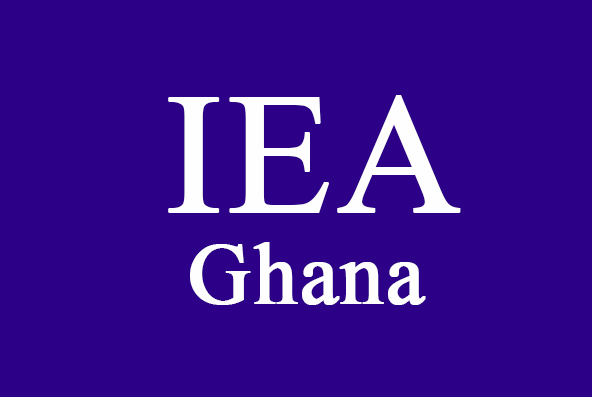
Audio By Carbonatix
The Institute of Economic Affairs (IEA) is calling for the scaling down of the number of ministers from 84 to 40.
According to its Director of Research, Dr. John Kwakye, the current number of ministers has not had any positive impact on governance, but rather burdened the taxpayer.
He, therefore, wants the 2023 budget to merge some of the ministries to ease the burden on capital expenditure.
Speaking at a pre-budget media engagement in Accra, he said the number of Ministries must be drastically reduced to 12, whilst the Sector and Regional Ministers must be cut to 40.
The 2023 Budget is expected to adopt tight budget spending.
The IEA therefore, proposed a reduction in the ceiling on the fiscal deficit from the current 5% to 3%, applicable from 2024, to foster fiscal and debt sustainability, amendment of the Fiscal Responsibility Act (FRA) to require that borrowing is used exclusively to fund CAPEX, borrowing and debt ceilings in the FRA to foster debt sustainability and the establishing of a Parliamentary Budget Office (PBO) to assist Parliament in exercising its budget oversight mandate.
Other suggestions include reviewing the mining tax regimes to increase benefits to Ghana, reduce petroleum taxes/levies to ease pump prices and indicating a plan to review and rationalise flagship programmes to make them fit-for-purpose and reduce budgetary costs.
Others are the allocation of adequate resources to capital expenditure (at least 5-7% of Gross Domestic Product in 2023) to spur growth, increase resource allocation to the important agriculture, industry, energy and infrastructure sectors to boost growth and job creation.
Furthermore, the IEA also said the financial solution must involve prudent monetary and fiscal policies that prevent destabilising demand pressures.
“To this end, fiscal and monetary policy must both be hedged within strict rules since too much discretion has been abused with serious consequences”.
These include enforcing the ceiling of 5% of previous year’s revenue on Bank of Ghana’s lending to government and reducing the ceiling on the fiduciary currency issue, that is the portion not backed by forex but backed by government debt, progressively from the current level of 60% to 20% by 2024.
This will simultaneously raise the current 40% floor for the forex cover to 80% over the period.
Latest Stories
-
E-mobility project explores solutions for healthcare delivery and climate resilience
7 minutes -
Middle East Conflict: Time to save multilateralism, not deepen unilateralism — Security Analyst
9 minutes -
Former US diplomat sentenced to life for abusing two girls in Burkina Faso
10 minutes -
Rethinking institutional vitality at SSNIT
13 minutes -
Holy Child College of Education marks 80 years excellence in teacher education
16 minutes -
Kente must evolve from occasion cloth to design economy powerhouse
23 minutes -
West African content creators pledge to combat commercialisation of disinformation
25 minutes -
Delta names Matt Long as Managing Director, Alliances – Europe & Africa
28 minutes -
Climate-smart charcoal: Reinventing a household fuel
28 minutes -
100 additional courts to be connected to ADR – Justice Mensah-Homiah
33 minutes -
Presidential Wardrobe: Mahama’s repeated smock at SONA – coincidence or a statement?
35 minutes -
New Black Stars Technical Staff not on salaries – Sports Minister
39 minutes -
Middle East conflict could spark new wave of global terrorism – Security analyst warns
42 minutes -
Government introduces 20% salary top-up for rural teachers under ‘Teacher Dabre’ Initiative
43 minutes -
US/Israel–Iran conflict could hit Ghana’s economy — Prof Antwi-Danso
48 minutes

